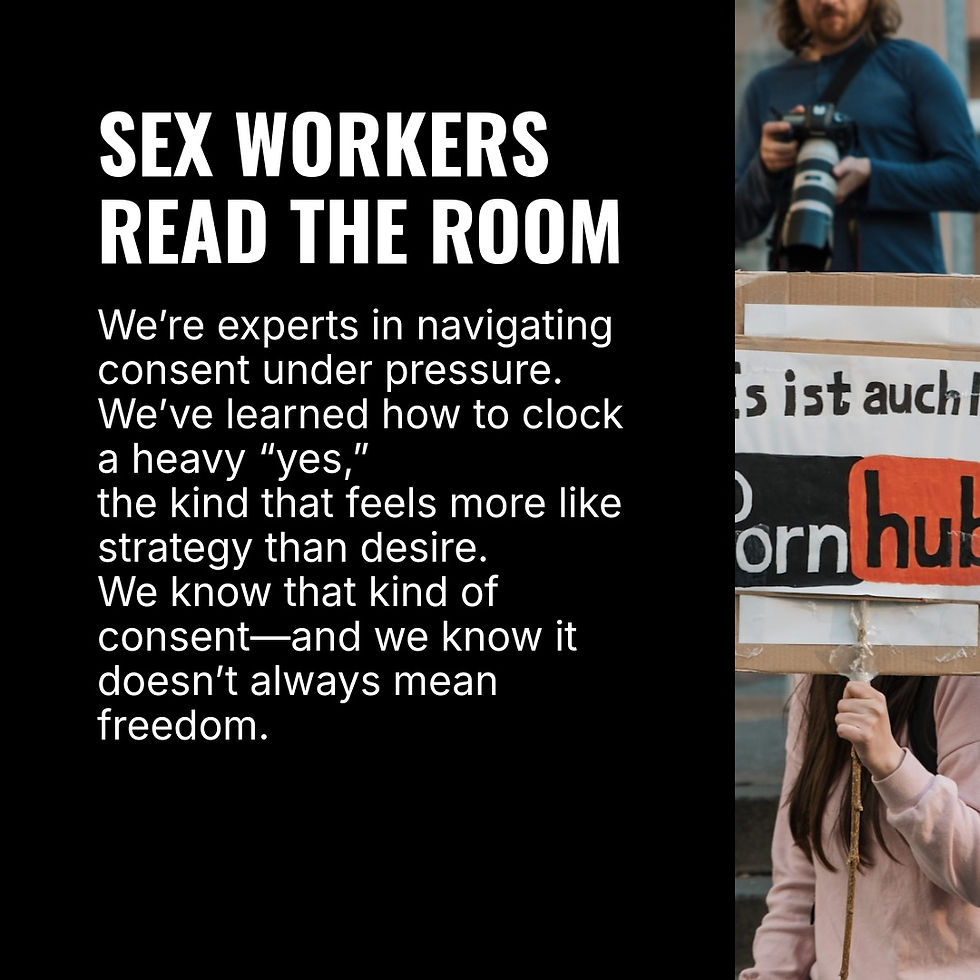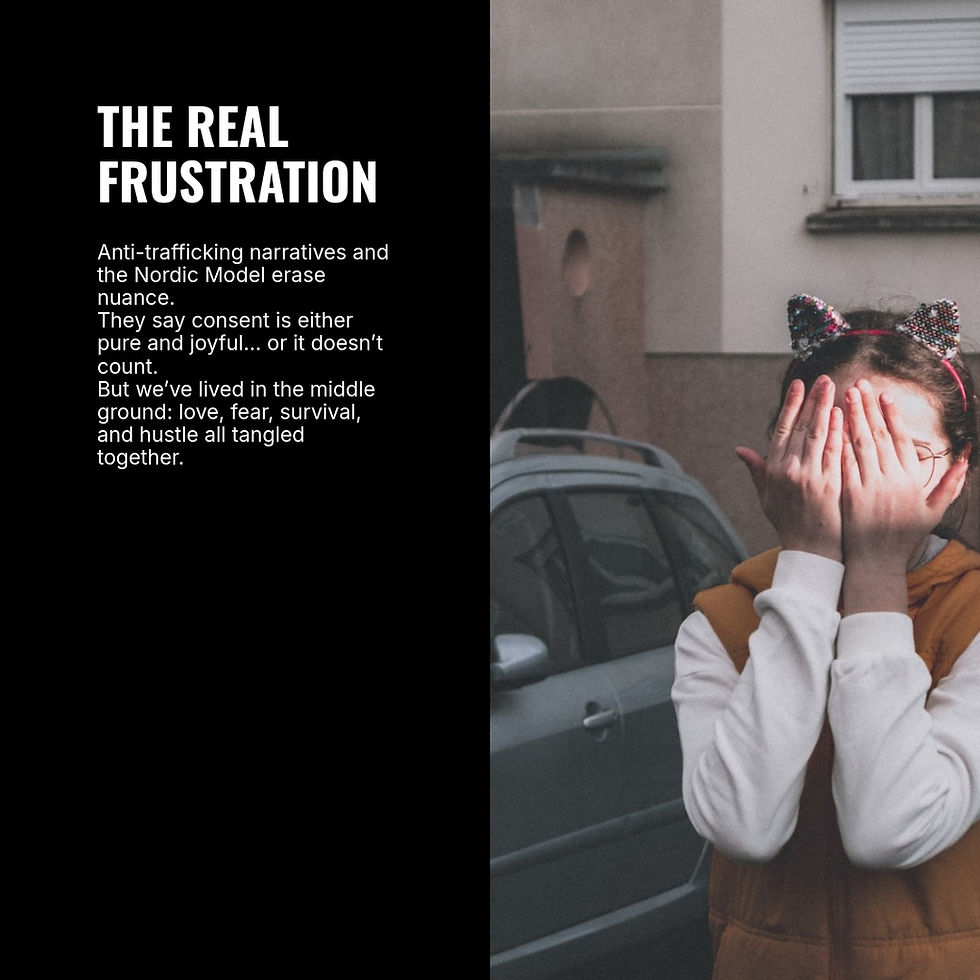The Gray is Real: The Complicated Nuance of Consent in Sex Work
- Swop Behind Bars

- Jul 11, 2025
- 3 min read
By someone who's been there, done that, and had to explain it way too many times

Consent is often framed as a clean, binary decision: yes or no. Thumbs up or down. Red light, green light. But in sex work—and, honestly, in most parts of life—it’s never that simple.
Consent is a spectrum, and anyone who’s ever worked in the industry can tell you: the messiest parts of our labor live in the in-between.

We’re told to believe that “real” consent is enthusiastic, freely given, and uninfluenced by pressure.
But that standard conveniently ignores capitalism, housing insecurity, gendered violence, and a thousand other forces that shape people’s choices. When a client asks for something extra and we say yes, is that consent? Sure. But is it the same kind of yes we’d give if we had paid time off, universal healthcare, or a trust fund to fall back on? Probably not.

That doesn’t mean sex work is inherently coercive. It means life under capitalism is.
We don’t call it exploitative when someone takes a second shift at a warehouse to afford insulin. But we do when someone books a client to cover rent. Why? Because people are uncomfortable with the idea that sex can be both labor and emotionally complicated. That you can consent to something with conditions, and still have that consent be valid—and still wish you didn’t have to make that choice.

Here’s the thing: sex workers are experts in navigating consent under pressure.
We do it daily. We assess risk, manage boundaries, and make calculated decisions in real time. We know what coerced consent feels like—not because we read about it in a study guide, but because we’ve had to spot it in ourselves, our friends, and sometimes our clients. We know when a “yes” feels heavy. When it feels like survival. When it feels like a trap dressed up as a choice.

And that’s why we get so frustrated with the dominant narratives pushed by anti-trafficking campaigns and Nordic Model crusaders.
They pretend consent is either pure and joyful or nonexistent and criminal. But that binary erases the lived experiences of so many people—especially those of us who’ve consented out of desperation, or strategy, or love, or a mix of all three.

When sex workers talk about consent, we’re not romanticizing the hard parts—we’re being honest about them.
We’re saying, Yeah, sometimes I said yes when I didn’t want to. Sometimes I negotiated the safest “yes” I could in the moment. Sometimes I felt empowered, and sometimes I felt gross. And sometimes, it was both. That honesty doesn’t mean we’re confused victims. It means we understand consent better than most.

The truth is, you don’t have to be perfectly free to make a valid choice. But we do have to talk about the pressures that shape those choices—economic, social, emotional, systemic. We have to stop pretending that people only deserve protection if they can prove they were completely out of options. And we have to trust sex workers when we say: we know the difference between a yes that’s ours, and a yes we were cornered into.
Consent in sex work is nuanced. It's complicated. It's deeply human. And if you're uncomfortable with that, maybe the problem isn’t sex work—it’s the story you’ve been sold about what consent is supposed to look like.




Comments